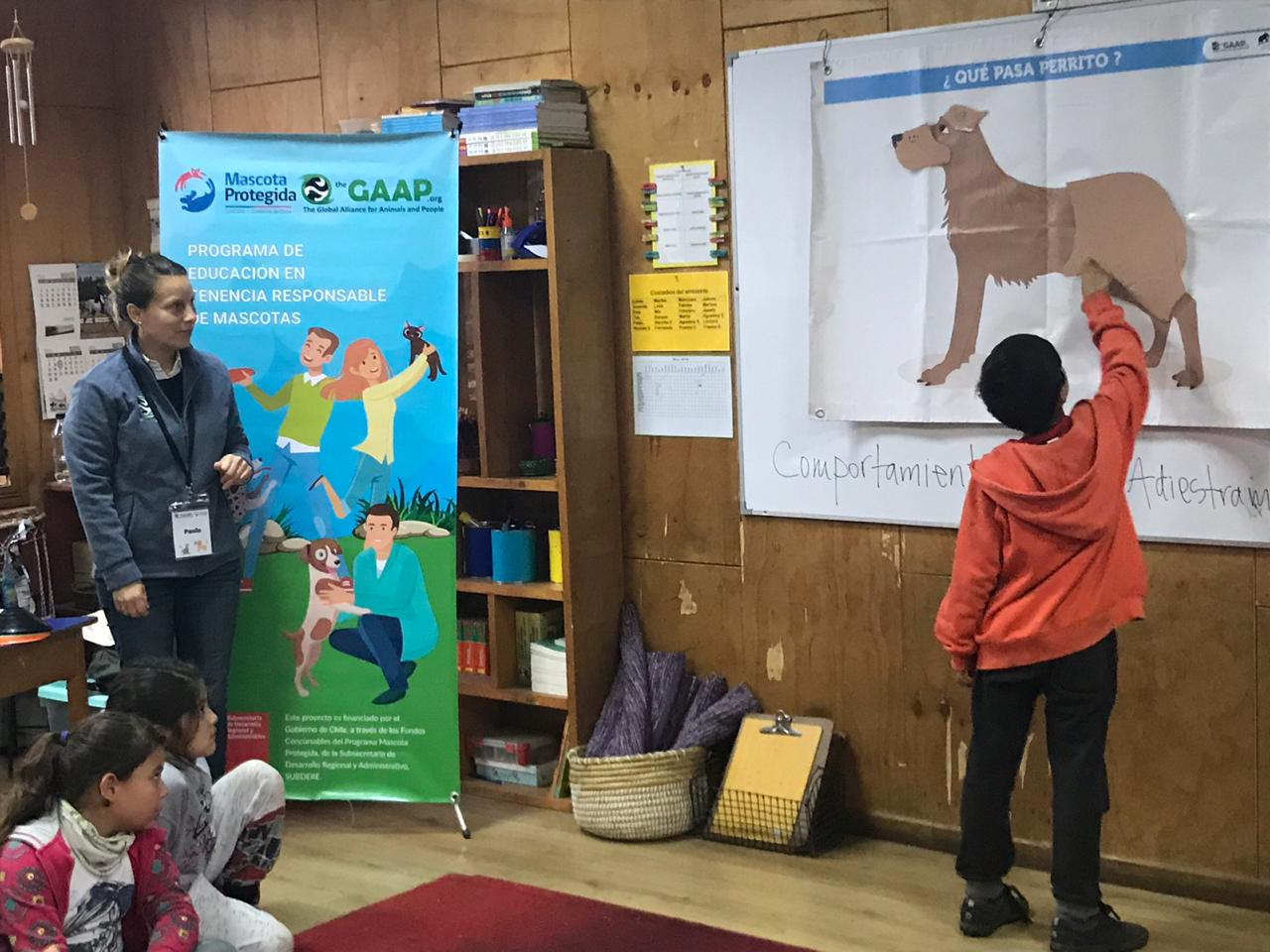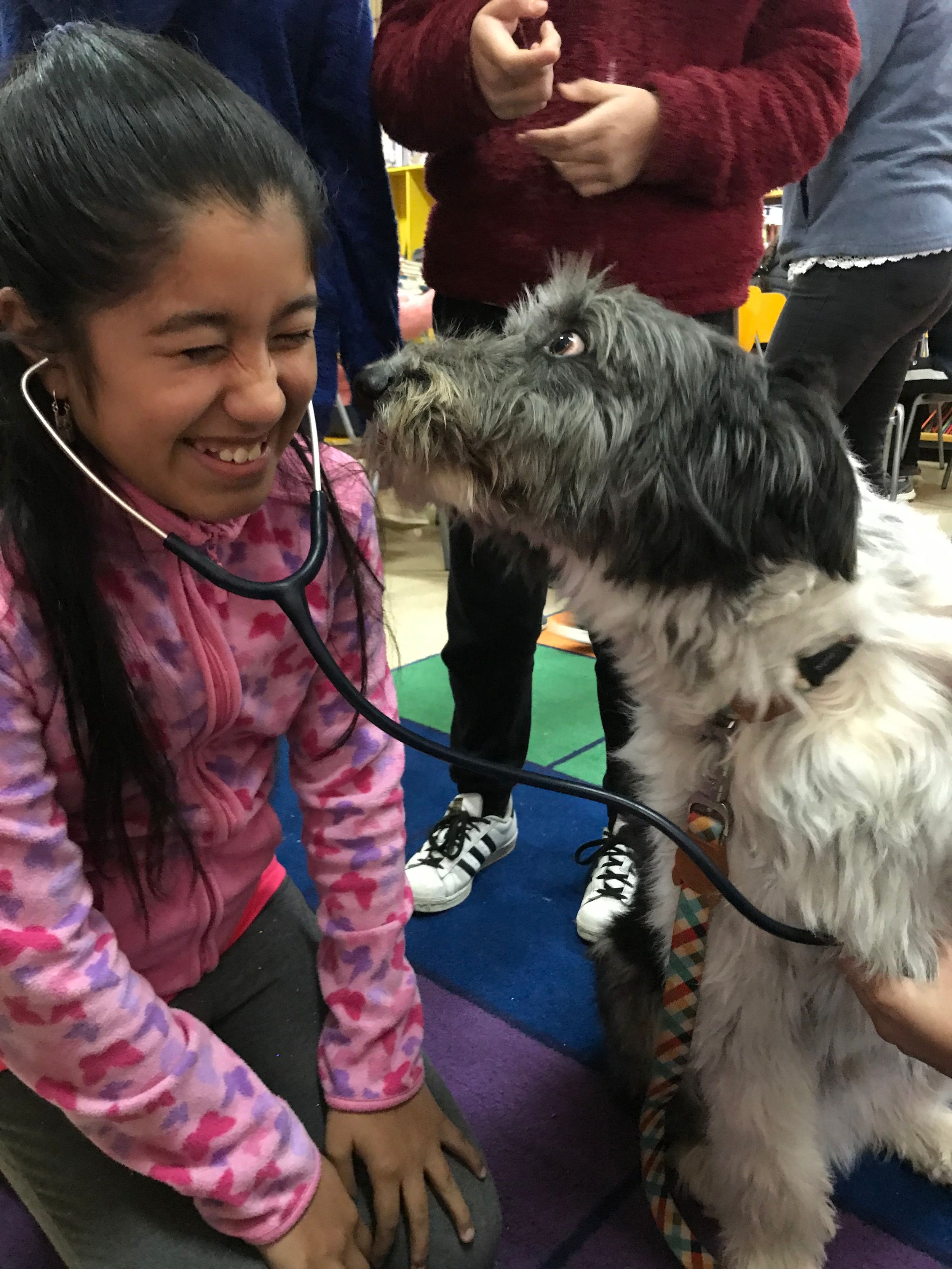Healthy Pets Education Program

Only since 2017 has the abuse or neglect of pets been illegal in Chile.
Without a larger cultural shift in what people understand to be responsible pet ownership, the relatively new law won’t have much impact on animal well-being throughout the country. In Chile, having a pet roam the streets during the day and (hopefully) return home by night is common. Misconceptions about sterilization keep people from taking necessary steps to reduce issues that come from overpopulation, and lack of knowledge of other preventive health measures contributes to lower quality of life for many dogs and cats.
Our approach: Education for long-term change
Our Healthy Pets education program focuses on engaging community members (with a special focus on kids!) in becoming an active part of responsibly caring for their pets. The program consists of ten interactive workshops (available both in-person and virtually) with accompanying videos that connect the content to the local reality. By discussing topics such as the five basic freedoms of animals, how to “speak dog” (or read a dog’s body language to understand what they are trying to communicate), and rabies prevention, program participants gain a new level of awareness of their pets’ needs and learn how to construct a respectful bond with them.
Our one health approach emphasizes the impact of our pet’s health on our own, as well as on the environment and wildlife surrounding us. By integrating our content with the national curriculum and training teachers to offer the workshops and incorporate the information into their lessons, we hope to continue growing this program throughout different communities in Chile, creating a cultural shift of increased accountability for pets’ well-being and a closer connection between animals and their caretakers.
For us, a cultural shift is the only way to create sustainable change in how animals are treated on a larger scale, and we know that educating kids is the best opportunity to bring positive changes into action!
Change in action
These quotes are from one of the thousands of kids who have participated in our Healthy Pets program. Thanks to her experience in this program, Sofía reflected on her own habits and made real changes to improve her dog’s well-being. Read more about Sofía’s story here
Before…
“I think she was really sad… I didn’t really value her, I just left her lying around in the backyard.”
-Sofía (age 11) about her dog Amanda
After…
“The truth is I’m very proud of this workshop because it made me think about my little dog, Amanda. She was given to me, and I haven’t been taking very good care of her. When I started coming (to the workshops), you helped me change that and I started caring for her… the next day I bathed my dog, cut her hair and she started staying inside the house.”
-Sofía, on the actions she took as a result of the Healthy Pets workshops
Gallery
¿Hablas español? ¡Visita la página web de nuestro programa educativo de Mascotas Saludables!
How does Animal Health & Welfare Education relate to One Health?
When people care for their companion animals in responsible ways - through regular vaccinations, proper interaction and supervision, safe and comfortable homes, appropriate nutrition, etc. - those animals are less likely to get sick and less likely to roam freely. This equates to a reduced risk of interaction with other animals, both wild and domestic, meaning lower chance of spreading diseases among pets, wildlife, and people.

Help kids learn about their role in a healthier world!
Special thanks to our incredible partners at:

















